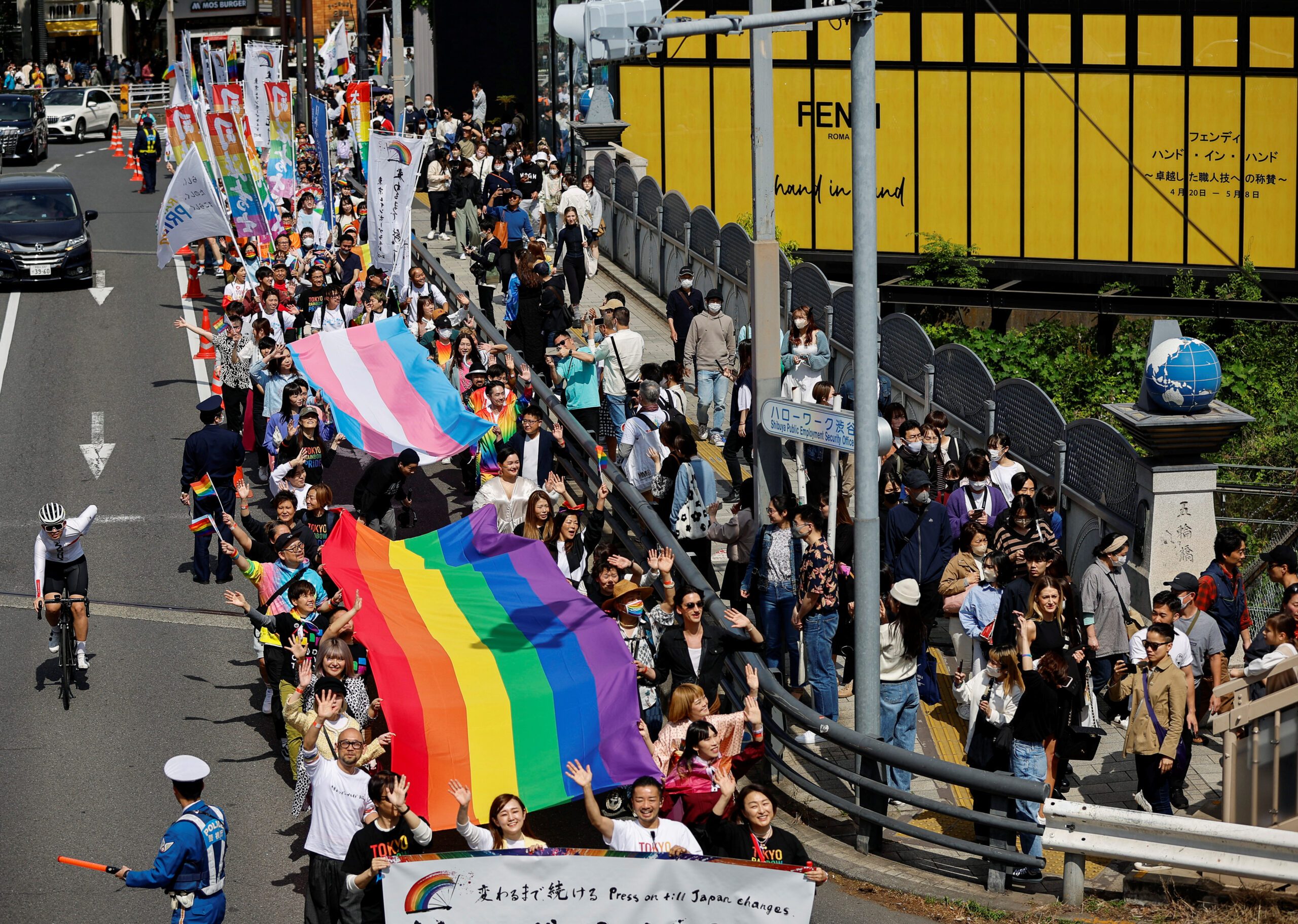SUMMARY
This is AI generated summarization, which may have errors. For context, always refer to the full article.

TOKYO, Japan – A Japanese court ruled on Tuesday, May 30, that not allowing same-sex marriage was unconstitutional, a decision activists welcomed as a step towards marriage equality in the only Group of Seven nation with no legal protection for same-sex unions.
The ruling by the Nagoya District Court was the second to find a ban against same-sex marriage unconstitutional, out of four cases over the past two years, and is likely to add to pressure to change the law in a country in which the constitution says marriage is between a man and a woman.
“This ruling has rescued us from the hurt of last year’s ruling that said there was nothing wrong with the ban, and the hurt of what the government keeps saying,” lead lawyer Yoko Mizutani told journalists and supporters outside the court.
She was referring to a ruling in Osaka last year that the ban was not out of line with the constitution.
A Tokyo court later upheld the ban on same-sex marriage but said a lack of legal protection for same-sex families violated their human rights.
Tuesday’s ruling was greeted with cheers from the activists and supporters waving rainbow flags outside the court.
Though opinion polls show some 70% of the public supports same-sex marriage, the conservative ruling Liberal Democratic Party of Prime Minister Fumio Kishida opposes it.
Kishida in February sacked an aide who sparked outrage by saying people would flee Japan if same-sex marriage was allowed, but the premier remains noncommittal about it and has said discussions must proceed “carefully.”
Nevertheless, more than 300 Japanese municipalities covering some 65% of the population allow same-sex couples to enter partnership agreements.
But the right is limited in scope. Partners can’t inherit each other’s assets or have parental rights to each other’s children. Hospital visits are not guaranteed.
Mizutani said the court in its ruling had noted that such partnership agreements were not fully sufficient, which she took as an encouraging sign, adding that she felt the court recognized there was little difference between same-sex couples and other couples.
Chief Cabinet Secretary Hirokazu Matsuno told a press conference that the government did not believe the civil code and marriage laws were unconstitutional.
“With regard to issues surrounding the introduction of same-sex marriage, we believe it is important to pay close attention to the opinions of all parts of the public,” he said.
While in general the world’s third-largest economy is considered relatively liberal, the LGBT community has been largely invisible because of conservative attitudes. Taiwan became the first place in Asia to legalize same-sex marriages in 2019.
A new law would have to be passed in Japan before same-sex marriages could actually take place.
The government pledged to pass a law promoting “understanding” of LGBT people before hosting the G7 summit this month, but opposition from conservatives delayed it so much a watered-down version was only submitted to parliament the day before the summit began.
The initial draft stipulated discrimination on the basis of sexual orientation and gender identity should “not be tolerated” but was changed to “there should be no unfair discrimination,” wording that critics say tacitly allows bigotry.
Japan has come under increasing pressure to change, both from other G7 members but also from economic lobbies, with businesses arguing that greater diversity is needed for international competitiveness. – Rappler.com
Add a comment
How does this make you feel?

![[Hindi ito Marites] Japan: From enemy to bestie](https://www.rappler.com/tachyon/2024/07/Hindi-ito-Marites-TC-ls-7.jpg?resize=257%2C257&crop=415px%2C0px%2C1080px%2C1080px)


![[Rappler’s Best] America](https://www.rappler.com/tachyon/2024/07/rapplers-best-america.jpg?resize=257%2C257&crop=458px%2C0px%2C1080px%2C1080px)








There are no comments yet. Add your comment to start the conversation.